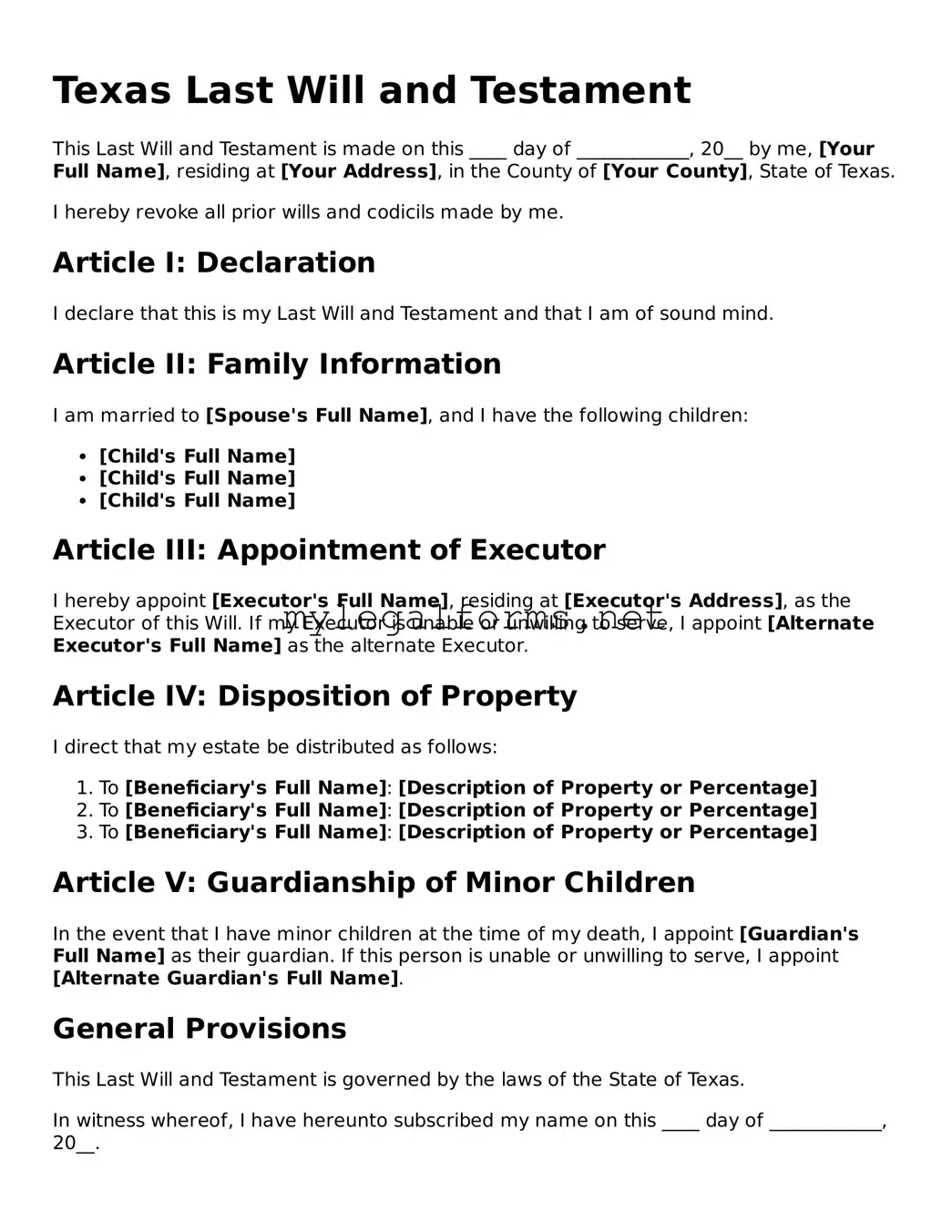Last Will and Testament Document for Texas State
A Texas Last Will and Testament form is a legal document that outlines how a person's assets and affairs should be handled after their passing. This form ensures that your wishes are honored and provides clarity to your loved ones during a difficult time. Understanding its importance can help you make informed decisions about your estate planning.
Launch Last Will and Testament Editor

Last Will and Testament Document for Texas State
Launch Last Will and Testament Editor

Launch Last Will and Testament Editor
or
⇓ PDF Form
Complete the form at your pace — fast
Finish your Last Will and Testament online and download the final version.